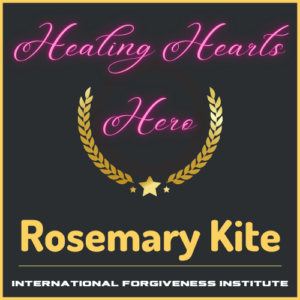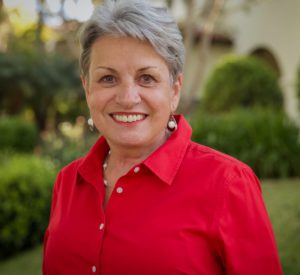Archive for October, 2022
OK, so to forgive is not a sign of weakness within the one who forgives. Yet, it seems to me that as you forgive another person, you actually weakened that other. I say that because you now are on the higher ground of forgiveness and the other sees the self standing lower because of the misbehavior. Forgiving weakens the other.
This is a misunderstanding of what it means to forgive another person. When you forgive, and when the other person “sees the self standing lower because of the misbehavior,” you do not let the other, in that person’s own judgement, remain in a lower position. Instead, you, as the forgiver, can say, “Come. Take my hand so we can stand side-by-side.” Forgiving is the challenge of seeing the other and you as both possessing equal worth as persons.
In an intimate relationship, how can one rebuild trust after the other shattered that trust?
Once you have walked the path of forgiving, I recommend an attempt at reconciliation. One can slowly rebuild trust with what I call the 3 R’s of remorse, repentance, and recompense. Remorse is an inner sorrow. Is the other genuinely sorry for what happened? Repentance is words that express remorse. Has the person genuinely apologized, truly meaning it (and you usually can tell a phony repentance from a sincere one by seeing the other’s emotions). Recompense is trying to make up for what happened, within reason. Has the other tried to change so that the injustices now are minimized or even eliminated? It can take time to see that recompense is occurring on a consistent level, but as you see this more stable change, trust can begin to emerge.
Is Forgiveness a Decision?
I have heard quite often that the essence of forgiving others is a decision. As the one who was offended makes this internal commitment to be good to the one who offended, then this allegedly is forgiveness. Is this correct and if not, then what are some of the problems with this approach?
As a follower of the ancient Greek philosopher, Aristotle, I have come to realize that forgiveness is a moral virtue because it has the characteristics of all of the other moral virtues such as justice, patience, kindness, love, and all the others. One common characteristic is that all of these concern goodness, starting within the person so exercising the virtue and then flowing out to other people for their good. For example, one aspect of justice involves the goodness of an equal exchange between persons. If you contract with a carpenter to build a table for you at the cost of $300, you are being good (just) by handing over the $300 once the table is complete.
All moral virtues have a certain wholeness to them, according to Aristotle, in that the one exercising any of these moral virtues: a) knows it is good; b) is motivated to do good; c) behaves in such a way as to exercise the good (as in the payment for the table); and d) becomes more competent in the virtue with continual practice of it.
Given that forgiveness is a moral virtue, it possesses the essential characteristics of all other moral virtues. Therefore, as people forgive, they: a) think about forgiving, knowing what it is and is not; b) become motivated to forgive, which can include a decision to move forward, and an inner conviction or feeling that this should be done; c) behaviorally exercise forgiving, which can be done in a wide variety of ways such as a smile toward the one who acted unjustly, a returned phone call, or other acts of goodwill.
When we look at forgiveness as a moral virtue, we see this wholeness that goes well beyond a decision. Yes, deciding to forgive is part of what constitutes forgiveness, but to claim that such a decision is forgiveness reduces this heroic moral virtue to only one of its component parts. This is a form of splitting, so common in modern philosophy and psychology. For the sake of novelty, some scholars emphasize the importance of feelings when describing humanity; others reduce humanity to behaviors only. None of this splitting captures who we are as persons. In a similar way, reducing forgiveness to one of its component parts, whether it is a decision to forgive or a motivation to do good, is to distort the forgiveness process. If we listen too long to those who split forgiveness into its component parts and chose their favorite part, then we may be hampering people’s full embrace and expression of what forgiveness actually is. This, in turn, may block deep healing from resentment and prohibit genuine reconciliation because the “forgiver” is only partly appropriating this virtue.
Long live the wholeness of the moral virtue of forgiving.
![]()
Healing Hearts Hero Award Presented to Rosemary Kite
Rosemary Kite, founder and president of Forgive4Peace (2008-2018), has been selected to receive the International Forgiveness Institute’s (IFI’s) Healing Hearts Hero award. The award recognizes individuals who have developed collaborative partnerships with the IFI and its co-founder Dr. Robert Enright in order to promote the virtue of forgiveness on an international basis.
Formerly called Possumus International, the organization was created in 2008 with what Rosemary calls “the desire to overcome evil through a superabundance of good. And what better good could be provided to the world than instruction on how to exercise mercy towards one another, bridging the way to peace by teaching the importance and value of forgiveness at home, at school, and at work.”
Shortly after its founding, Possumus International (Latin for the words “we can”) became a 2009 Charter Member of the National September 11th Memorial and Museum. Then Rosemary and her colleagues initiated an annual “Family, Friends and Forgiveness” essay competition for girls 10-14 years old with the winners awarded camp scholarships.
In 2013, after learning about and wanting to be a part of the empowering work of the IFI, Rosemary established a “Families and Forgiveness” program that incorporated lessons from Dr. Enright’s A Family Guide to Forgiveness Education into private home settings.
Since then, Rosemary and Dr. Enright have collaborated on school Forgiveness Education projects around the world including those in: 1) Inner City Milwaukee, Wisconsin; 2) Belfast, Northern Ireland; 3) Liberia, West Africa; and, 4) the West Bank, Israel.
Forgive4Peace provided financial support for two IFI-hosted events—the Jerusalem Conference on Forgiveness (2017) and the Rome Conference on Forgiveness (2018). In July, Rosemary was an active participant at the International Educational Conference on Agape Love and Forgiveness in Madison, WI, that was hosted by the IFI and attended by 160 educators from the US, Northern Ireland, Taiwan, Israel, Spain, and the Philippines.
 “Rosemary is a fabulous ambassador for forgiveness who has continually impressed me from the first day I met her,” according to Dr. Enright. “She is constantly trying to raise awareness of the importance and value of forgiveness in one’s everyday life. She definitely knows how to heal hearts through forgiveness.”
“Rosemary is a fabulous ambassador for forgiveness who has continually impressed me from the first day I met her,” according to Dr. Enright. “She is constantly trying to raise awareness of the importance and value of forgiveness in one’s everyday life. She definitely knows how to heal hearts through forgiveness.”
In her 2019 guest blog for this website, The Art and Science of Forgiveness, Rosemary wrote:
“The art and science of forgiveness suggests that the best medicine we can possibly take to improve our physical, psychological, social, and spiritual health, is forgiveness. Forgiveness is like the pill that offers the deepest healing of the wounds that fester in the human heart.”
Elsewhere she says: “As everyone who has ever had to forgive knows, every act of forgiveness begins with an injustice. We have wounded hearts all around us, everywhere we go. Why not try to be a healing heart to those we come across in our paths daily?”
Rosemary, who has a BA from California State University in San Francisco, has devoted her professional career to educational endeavors in the non-profit sector, primarily through the education of women and girls.
Agape Love and Forgiveness Conference Speaker Videos Available in Four Languages
Speaker videos from the International Educational Conference on Agape Love and Forgiveness, held July 19-20, 2022, in Madison, Wisconsin, USA, (funded by the John Templeton Foundation) can now be viewed online absolutely free in four languages–Arabic, English, Hebrew, and Mandarin–using the links below.
The 26 professionally produced presentations feature educators from Northern Ireland, Israel (both Hebrew- and Arabic-speaking), Taiwan, the Philippines, and the US. They describe their experiences teaching agape love and forgiveness to their 5th grade students and outline creative Forgiveness Education teaching techniques.









